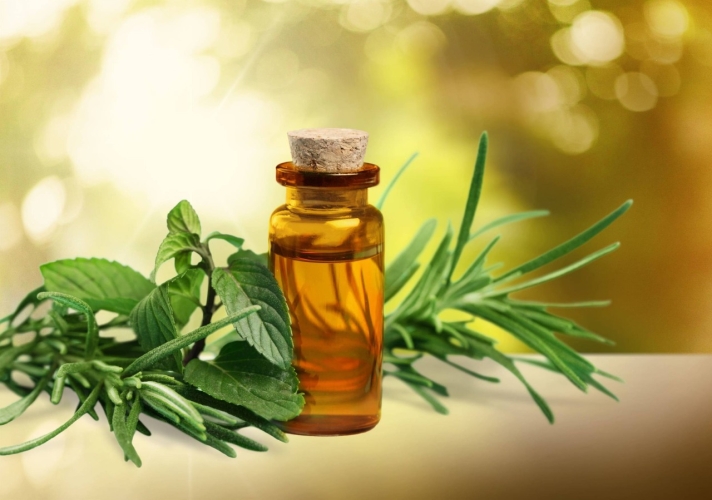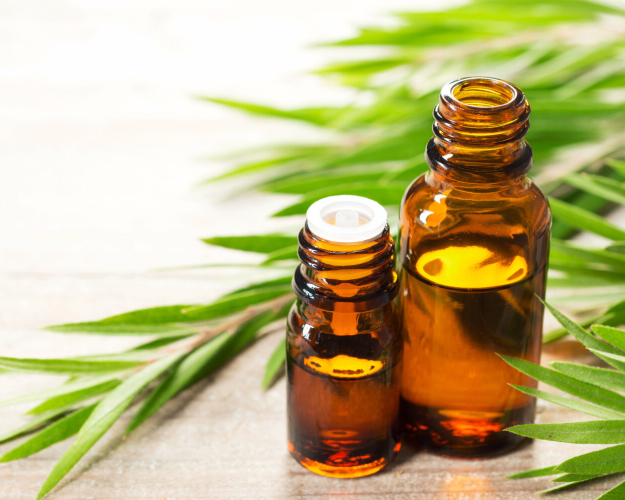
Tea tree oil, an essential oil derived from the leaves of the Melaleuca alternifolia plant, has gained popularity for its remarkable therapeutic properties. Known for its potent antiseptic, anti-inflammatory, and antimicrobial effects, tea tree oil is a versatile remedy that can address a myriad of health and beauty concerns.
The use of tea tree oil dates back centuries to the indigenous Bundjalung people of Australia, who used the crushed leaves of the tea tree for medicinal purposes. They applied it to cuts, wounds, and infections, harnessing its natural healing properties long before it became popular in modern medicine.

Antiseptic for Cuts and Wounds: Tea tree oil's antiseptic properties make it an excellent choice for treating minor cuts and abrasions. Applying a diluted solution to the affected area can help prevent infection and promote faster healing.
Acne Treatment: Tea tree oil is renowned for its ability to combat acne. Its antimicrobial properties target the bacteria that cause acne, while its anti-inflammatory effects reduce redness and swelling. A few drops of tea tree oil diluted with a carrier oil can be applied to acne-prone areas to see significant improvements.
Relief from Skin Conditions: Conditions such as eczema, psoriasis, and dermatitis can be alleviated with tea tree oil. Its anti-inflammatory properties soothe the skin, reducing itchiness and irritation. A diluted mixture can be applied directly to the affected areas for relief.
Anti-Fungal Agent: Tea tree oil is effective against fungal infections, including athlete's foot, ringworm, and nail fungus. Regular application of tea tree oil can help eliminate these persistent infections and prevent their recurrence.
Respiratory Health: Inhaling tea tree oil can alleviate symptoms of respiratory conditions such as colds, bronchitis, and sinusitis. Adding a few drops to a bowl of hot water and inhaling the steam can clear nasal passages and reduce congestion.

While tea tree oil offers numerous benefits, it is essential to use it safely. Always dilute tea tree oil with a carrier oil, such as coconut, olive, or almond oil, before applying it to the skin. A patch test is recommended to ensure no allergic reactions occur. Additionally, tea tree oil should never be ingested as it can be toxic if swallowed.
Tea tree oil, extracted from the leaves of the Melaleuca alternifolia plant native to Australia, is a unique essential oil celebrated for its diverse range of uses and remarkable healing properties. Known for its potent antiseptic, anti-inflammatory, and antimicrobial effects, tea tree oil has become a staple in natural medicine and skincare. This article delves into the distinctive benefits and lesser-known applications of tea tree oil, showcasing why it truly stands out as a natural remedy.
Tea tree oil has been used for centuries by the indigenous Bundjalung people of Australia. They discovered its healing properties and utilized it for treating wounds and skin infections. The oil's popularity soared in the early 20th century when Australian soldiers used it as a powerful antiseptic during World War II. Today, tea tree oil continues to be revered for its natural healing abilities.